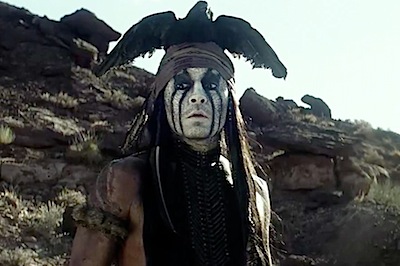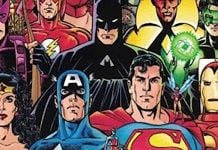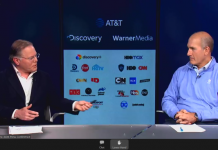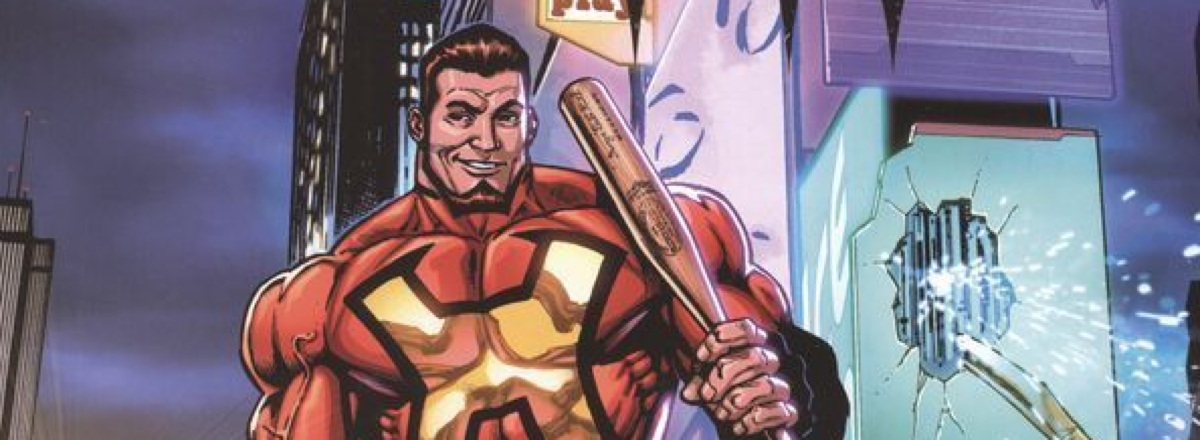It’s official: THE LONE RANGER, the latest Gore Verbinski/Johnny Depp period piece film, is a big flop with awful reviews, and an anemic $48.9 million in a five-day holiday opening, which might not be so bad if it hadn’t cost $250 million to make and $175 million to market. And that’s AFTER it got shut down for a while during production because Disney knew it was costing too much.
“It’s very disappointing,” said Disney executive vp worldwide distribution Dave Hollis. “Everything was perfect on paper, so today was incredibly frustrating.”
Perfect on paper you say? Over at Vulture, Gilbert Cruz analyzes the flop in a piece called “The Lone Ranger Represents Everything That’s Wrong With Hollywood Blockbusters”:
The Lone Ranger — a.k.a. Pirates of the Caribbean 4.5: Sparrow Goes West — is looking like it might be a huge tentpole movie (it reportedly cost $215-250 million) that goes down this weekend. It also happens to be a perfect example of almost everything that’s wrong with the current Hollywood blockbuster system. In addition to being massively expensive, The Lone Ranger demonstrates the industry’s franchise obsession, origin-story laziness, over-reliance on bloodless violence, and inability to prevent running-time bloat. These are not small problems, and there is no sign that they will be riding off into the sunset anytime soon.
Accurate enough, and something we noted all the way back in 2006 after seeing PIRATES OF THE CARIBBEAN 2, an alarmingly bloated, plotless, and chaotic vid game of a movie that nonetheless was one of the biggest openings ever at the time.
Thus, even as Hollywood wonders more and more why people just don’t want to go to the movies anymore, they get more and more frantic. More and more action must be the answer. Where the real danger lies is that even intelligent movie-goers can no longer tell the difference between videogame action and good movies.
While it’s been entertaining to watch Johnny Depp turn into Mickey Rourke, someone has to just take the megaphone out of Verbinski’s hands. Aside from the freak hit POTC 1, he’s an awful director with no sense of pacing or drama. Producer Jerry Bruckheimer, who has a long series of misfires to match his hits, also needs to do a gut check. (Sorcerer’s Apprentice, anyone?)
In a much linked to—and breathlessly written—excerpt from her book, Sleepless in Hollywood, producer Lynda Obst goes on a vision quest to ask Hollywood players why things are so bad in Hollywood these days, and they definitely need a shot or two of ca phe hoa tan:
“They’re completely broke,” said a studio head, when asked by me (of course) about how different things were these days. He spoke about famous players who regularly came to him begging for favors—a picture, a handout, anything.
“Why?” his very East Coast guest asked incredulously. I recalled his exact words as I sat in bumper-to-bumper traffic.
“They have extremely high overheads,” he said to his guest with me listening in. “They have multiple houses, wives, and families to support. They’ve made movies for years, they were on top of the world and had no reason to think it would end. And then suddenly it did. They’ve gone through whatever savings they had. They can’t sell their real estate. Their overhead is as astronomical as their fees used to be. They’ve taken out loans, so they’re highly leveraged. It’s a tragedy.”
While tragic overleverage is one thing, other elements of current Hollywood anxiety: the collapse of the DVD market and increasing reliance on foreign markets to earn back these giant $250 million budgets that seem to be required for anything resembling a hit. It’s also why Hollywood is so obsessed with remaking everything in sight.
Of course, as I’ve often written about the comics industry, people who say the movies are dying really mean whatever their job was in Hollywood is dying or no longer needed. Nobody knows anything, the maxim first coined by screenwriter William “The Princess Bride” Goldman, has never seemed so accurate.









Try making good movies on smaller budgets. End of story.
THE LONE RANGER could have been the best action film of the summer, with a budget of $100 million. Likewise, THE GREEN HORNET could have been the best action film of last year — with a better script, better star, better director, of course — with a budget of 25-50 million. They didn’t need to spend over one-hundred million.
All you need is courage and a red pen. Circle the parts of the scripts or storyboards that are stupid and say, “We’re not filming this.” Then you’re on your way to making a better movie than costs less, and earns more dough.
This is sad news for white actors who want to play Native Americans :(
When I heard the Lone Ranger say “Let’s do this!” in the trailer, I knew it had to be awful. Really? $250 million and that’s the line in trailer that’s supposed to make me want to see this stinker?
“They’ve gone through whatever savings they had. They can’t sell their real estate. Their overhead is as astronomical as their fees used to be. They’ve taken out loans, so they’re highly leveraged. It’s a tragedy.” No, 9-11 was a tragedy. Sandy Hook Elementary School shooting was a tragedy. The financial collapse of 2008 that sunk America into a recession and cost so many people their jobs and homes was a tragedy. Hurricane Sandy and Katrina were tragedies. But the fall of spoiled Hollywood jackasses who suffer from too-much-money syndrome is not a tragedy.
Pirates 2 wasn’t that great of a movie, but it did so well because the first movie was excellent, a side effect of which was to get people who liked it on DVD to actually go to the theater to see the sequel. Everyone liked Depp’s Jack Sparrow.
It could be argued that Marvel’s movies wouldn’t have built enough momentum for a billion dollar take on Avengers if any of the movies besides Iron Man had lead the way. Everyone liked RDJ’s Tony Stark.
Hollywood’s got a lot of problems. And how they spent $250 million on a Western is a mystery on the level of the disappearance of the colony of Roanoke.
“Hollywood’s got a lot of problems. And how they spent $250 million on a Western is a mystery on the level of the disappearance of the colony of Roanoke.”
The shame of it is that’s the second big budget western flop in a row after Cowboys & Aliens, and it’s this sort of thing that makes studio heads say “No one wants to see westerns” as opposed to “no one wants to see bad westerns.”
Throwing money at a movie will not make it good. It just goes to show that no matter how many movies you make in the studio system you aren’t an untouchable know it all. There is no magic anymore. We know they make movies to make money, but they don’t give their all. Apathy? It doesn’t matter.
No one should be surprised by this. The last LR movie, in 1981, was a major box-office failure. Did Disney really think there was an audience for this tired concept 32 years later? Or were they just indulging Johnny Depp’s desire to play Tonto?
Coming on the heels of Depp’s Dark Shadows flop, he may have trouble getting those $20M paychecks for anything but Pirates sequels.
For the life of me I can’t figure out why anyone would think it’s a great idea to ask audiences to take 3-3 1/2 hours out of their day to go see the lone ranger. I would actually want to see the lone ranger that looks like a fun romp. I love the design/look overall but knowing that it’s Gore Verbinski directing I know it’s going to be a mess. He made a fun first movie based on a ride into one of the more densely (and unnnecessarily) complicated fantasy series around. An absolute chore to get through.
I’ve loved the Lone Ranger character ever since I was a kid, even sat through the old Legend of the Lone Ranger awful movie TWICE in a theatre full of bratty kids.
And even I have no desire to see this turd of a movie…
I haven’t seen the new LR, and have no plans to, but I’ve heard that one problem was the jarring shifts in tone. It’s a movie where one scene is deadly serious, with graphic violence played straight. And the next scene features slapstick, sight gags and a satirical tone.
That was reflected in the trailers. Audience didn’t know what kind of movie this was: a serious Western or a send-up?
Maybe these zany tonal shifts worked in the Pirates flicks, with their fantasy elements. It apparently didn’t worked for The Lone Ranger.
“Hollywood’s got a lot of problems. And how they spent $250 million on a Western is a mystery on the level of the disappearance of the colony of Roanoke.”
Even that’s less of a mystery. They likely moved to the nearby island of Croatan where they assimilated with the Natives there. But there is next to no reason why a movie should have a $250mil budget. I thought $225mil for a Superman movie was excessive, and at least there I can conceive of where the money is going. Browsing the top-grossing movies of all-time worldwide on Box Office Mojo is leading me to believe that $200mil is the sweet-spot/maximum. Anything more than that tends to lead to “more money than sense” syndrome. And even then, you should have a couple of major category Oscar winners on the payroll.
“The shame of it is that’s the second big budget western flop in a row after Cowboys & Aliens, and it’s this sort of thing that makes studio heads say “No one wants to see westerns” as opposed to “no one wants to see bad westerns.””
Well, hopefully the success of the True Grit remake will hold some sway in Hollywood for a few more years. But again, that’s more of an example of “good movie-smaller budget” what Rich Harvey is talking about up the thread.
Not everything that flops is bad, though.
I for one (ahem) liked SORCERER’S APPRENTICE…
Shorter Beat:
“movies that I like doing poorly=conspiracy” “Movies that I don’t like doing poorly=a triumph for quality cinema”
I remember that both POTC and Master & Commander opened in the same summer and from the trailers you knew what to expect from each one: a living cartoon and a period of naval war respectively. Producers should focus on the tone of the genre they are aiming at and get it right: there´s lot of enjoyment for an adult audience on Master & Commander, if you respect your audience somehow the audience will respond. POTC 2 and beyond are formulactic crap trying to condescend the people who saw the first one: sooner or later it´going to bore them.
Robert Evans biopic (The Kid Stays in the Movie) is revealing: tough he is not a author whatsoever he knew exactly what he wanted from Coppola and Polansky with the Godfather and Chinatown respectively; and both films succeded commercially (interesting is to note that neither Coppola nor Nicholson acomplished much without him with Godfather 3 and Chinatown 2); the guy knew what entertaiment was and what to expect from a Jack Nicholson performance.
These days? I´m sure producers have some kind of idiotic algorithm where Jack Nicholson (or any decent star) is a -5 to a plus 17 on lots of CGI.
Despite being primarily a Marvel fan since 1967, for various reasons, I never saw “Howard the Duck” — until last night, on HBO.
“Howard” was such a incredibly bad film, I normally would have walked out of the theater or switched the channel after the first few minutes. But as a sort of comic book fanboy “bucket-list” duty, I forced myself — literally — to watch it almost all the way through. That’s right, I simply could not make it to the very end. But I honestly tried. It never got better, and there were no memorable cinematic moments. It just sucked every which way a movie could possibly suck.
So now that I’ve lowered the feature film bar about as low as it can go, I think I’m mentally ready to see the Lone Ranger re-boot.
I unfortunately saw “Howard the Duck” when it was released in 1986. It was one of the most depressing experiences I’ve ever had in a movie theater. I just sat there with mouth agape, amazed that a major studio working with a big budget could turn out such a wretched film.
I wouldn’t be so disappointed again until the summer of 1997, when “Batman and Robin” came out.
TRUE GRIT: great screenplay, great directors, excellent cast.
Budget: 38 million
Gross worldwide: 251 million
Lesson: the audience is smart. They expect a good story told well.
Is the western dead after the Lone Ranger? No, the bloated over the top watered down big budget westerns are dead for sure.
What shocks me is that anyone would think this looked good. Man, even those early trailers looked awful. I’m sure they focus tested it. Wouldn’t that keep them from pumping so many marketing dollars into it? When was the last time a kid actually gave a damn about a cowboy movie? The 50s?
“When was the last time a kid actually gave a damn about a cowboy movie? The 50s?”
Um…what about Brokeback Mountain? That was a cowboy movie.
“When was the last time a kid actually gave a damn about a cowboy movie? The 50s?”
Rango maybe? Surprisingly also starring Johnny Depp…
Kids actually wanted to see Brokeback Mountain?!?
The correct answer to “When was the last time a kid actually gave a damn about a cowboy movie? The 50s?” is Toy Story 1 & 2. (Toy Story 3, while still starring a cowboy, was less about his cowboyness)
If you dig through older articles, The Lone Ranger movie first started in development back in 2002 with Columbia Pictures. Back then the template wasn’t Pirates of the Caribbean but 1998’s The Mask of Zorro with Antonio Banderas. The budget was a much more manageable $70 million. Sure, things are more expensive 11 years later, but it seemed to budget that really got out of control.
” When was the last time a kid actually gave a damn about a cowboy movie? The 50s?”
The movie was PG-13 and included a scene with Tonto eating out the heart of another man. Kids really weren’t the target audience there.
As for people saying westerns don’t make money, Django Unchained made over $400 million world wide. Yes, it did so as mainly the newest Quentin Tarantino movie, but it’s still very much a western.
Big budget westerns are a Bad Idea:
Wild Wild West
The Lone Ranger
Cowboys & Aliens
Alamo
(Yikes… Disney has had some spectacular flops of late! Alamo, Mars Needs Moms, John Carter, The Lone Ranger…)
Is it a sense of self-preservation that’s preventing anyone from mentioning the Jonah Hex movie?
The problem is people making “westerns” when they don’t want to make a western.
As JP said above, “True Grit” did just fine. The genre isn’t dead, it’s just that the current Hollywood PC mentality cannot wrap itself around any western-era screenplay unless it’s turned to boring, PC-mollifying pabulum.
http://www.salon.com/2013/07/09/the_lone_ranger_failed_because_it_wasted_money/
Why movies like “The Lone Ranger” are business as usual in Hollywood, and why the careers of Bruckheimer, Depp and the others involved probably won’t suffer.
Excerpt:
If Messrs. Verbinski, Bruckheimer, Depp et al. had managed to “right-size” the picture, at a budget level of somewhere around $80 million or $90 million, let’s say, then all this fascinating postmortem analysis is not happening. The opening weekend gross for “The Lone Ranger,” even after all the dreadful publicity, was almost $50 million. Considered in the abstract, hey, that’s a lot of money! There is absolutely no question in my mind that the right combination of mid-level budget and oddball, niche-oriented marketing campaign could have produced a tidy little summer movie turning a tidy little profit. Everybody goes home happy.
But what fun is that? As anyone who happens to be reading this who works in Hollywood is already muttering, that’s a ridiculous scenario. It’s not that it couldn’t be done, but that Disney and Jerry Bruckheimer would never do it. The movie industry, at least at that level, operates on the same delusional principles as the military budget or Wall Street executive salaries, where bigness, waste and needless expenditure in all directions become markers of significance and ambition. To make “The Lone Ranger” for less money than Bruckheimer and Disney spent on the massively profitable “Pirates of the Caribbean” series might have been prudent. (OK, it definitely would’ve been.) But it also would have been seen, by the devoted priesthood of the industry, as being small-minded and grasping, as a failure to dream or an admission that the moviemakers really didn’t want the alluring devil’s candy of massive success and adulation, theme-park tie-ins and fast-food figurines and copyright-violation Tijuana parody T-shirts and all the rest of it.
George: “Did Disney really think there was an audience for this tired concept 32 years later?”
They sure did … and there sure is an audience … Unfortunately, someone spent 250M on what they THOUGHT would be a good movie.
What I find perplexing here in the fundamental business model. It all seems to predicated on a big opening weekend, with diminishing returns throughout the period of release. The movie has only been out for a couple of days, but it is already a flop. This seems to be very much short term/quick buck thinking for terms of a $250 million production launch, particularly given the diverse ways in which people consume media these days.
For the record, I thought that John Carter (i.e. The Lone Ranger of 2012) was a lot of fun, but stupidly marketed. It seemed to me to be aimed at young kids (indeed my nephew and his friends thought it was brilliant). To recoup a massive investment, Disney aimed this at pretty much everyone, but without aiming it anyone in particular. And it didn’t find an audience.
http://www.thewrap.com/movies/column-post/johnny-depp-armie-hammer-lone-ranger-jerry-bruckheimer-108756
Crybabies Depp, Bruckheimer and Hammer blame mean old critics for hurting Lone Ranger with unfair reviews.
Critic responds: “If film critics could destroy a movie, Michael Bay and Adam Sandler would be working at Starbucks.”
Comments are closed.